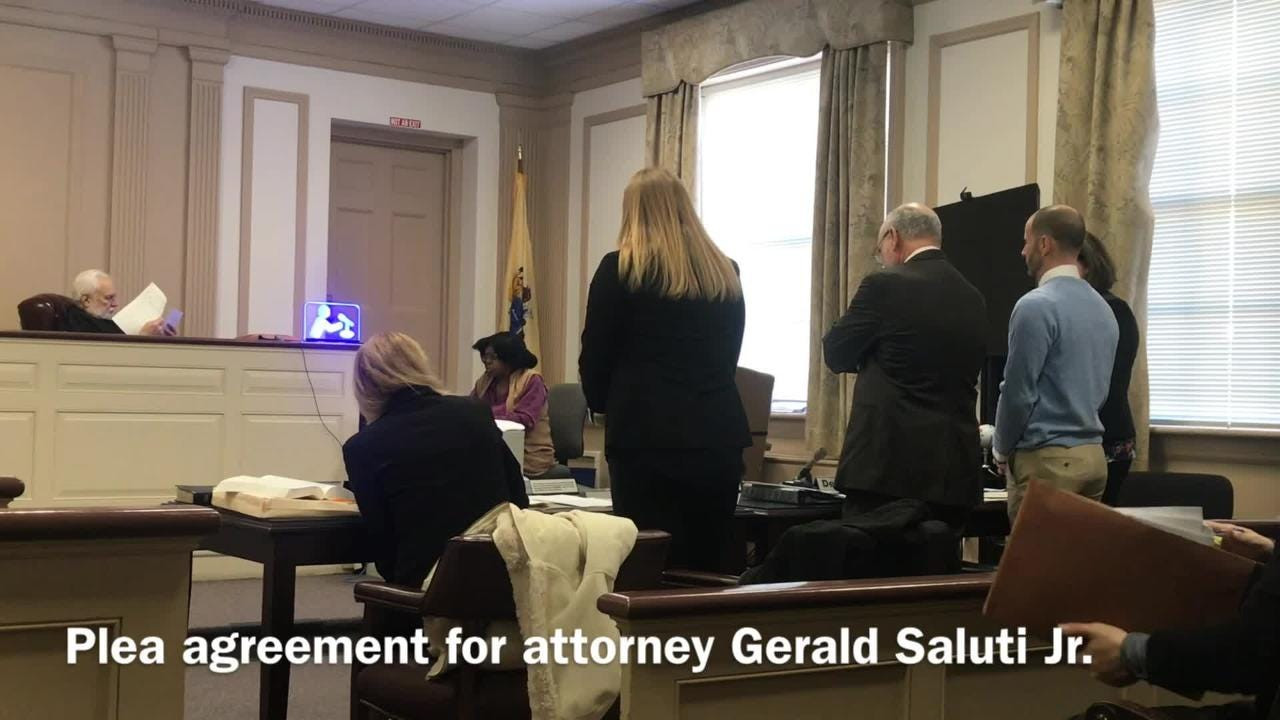Richard “Richie” Roberts, once celebrated for his role in dismantling Harlem’s drug empire in the 1970s and immortalized in the film “American Gangster,” experienced a dramatic reversal of fortune. The former Essex County prosecutor and lawyer found himself facing justice in a Morristown courtroom, receiving a five-year probation sentence for perjury and theft. This marked a stunning downfall for a man who once embodied law and order, now branded a “criminal, thief, liar” by the presiding judge. Roberts, aged 81 and residing in Woodland Park, was also mandated to perform 270 hours of community service and compensate his former clients for the stolen funds.
Despite the guilty verdict and sentencing, Richie Roberts Lawyer maintained a degree of deflection, attributing the financial misconduct to his deceased office manager. “There were red flags that I should’ve noticed. I failed to do that,” Roberts admitted in an interview following the sentencing. “I could have examined the books, I failed to do that, so in that sense, I allowed everything to happen and I’m guilty of that.” This statement, however, contrasted sharply with the court’s findings and the pain inflicted upon his victims.
The Legal Battles of Richie Roberts Lawyer: From Hero to Defendant
Richie Roberts, whose past exploits inspired the “American Gangster” movie, pleaded guilty to third and fourth-degree charges – failure to lawfully distribute funds and perjury, respectively. This admission came during his trial, where he confessed to misappropriating $20,000 from his law firm’s attorney trust account to cover alimony payments. The charges stemmed from a 2017 indictment against Roberts and his former law partner, Gerald Saluti Jr., for allegedly conspiring to steal over $140,000 from four clients between 2012 and 2013.
Judge Donald Collester, presiding over the case, underscored the stark contrast between Roberts’ past image and his present reality. “Mr. Roberts’ fall is pretty dramatic,” Judge Collester stated. “As we know, there was a major movie made about a portion of his life in which he was a hero and to many, he was a man of integrity and a hero. There are different words to describe Mr. Roberts today: Criminal. Thief. Liar.” This sharp condemnation highlighted the gravity of Roberts’ betrayal of public trust.
 Former attorney Gerald Saluti Jr. plea deal
Former attorney Gerald Saluti Jr. plea deal
Image alt text: Former attorney Gerald Saluti Jr. during his plea deal hearing, facing charges related to client theft alongside Richie Roberts.
Gerald Saluti Jr., Roberts’ former partner, had already been disbarred in 2017 for prior ethical breaches. He received a four-year probation sentence and 200 hours of community service in the same case, further cementing the legal troubles of the former law firm.
Richie Roberts: A Career Marred by Betrayal of Trust
Before his downfall, Richie Roberts lawyer had a distinguished career. He served as a detective and assistant prosecutor in Essex County, and also worked for the Federal Bureau of Narcotics. His claim to fame arose from leading a task force in the 1970s that targeted Frank Lucas, a notorious drug kingpin from Teaneck. Lucas famously claimed to have smuggled heroin into the United States using coffins of American servicemen returning from Vietnam. The 2007 film “American Gangster” fictionalized this period, with Russell Crowe portraying Roberts and Denzel Washington as Frank Lucas.
The perjury charges against Roberts and Saluti stemmed from their attempts to shift blame onto Gabriel Iannacone, their firm’s administrator, for the financial discrepancies. Iannacone had pleaded guilty to conspiracy to commit theft in 2017 and has since passed away. Roberts initially denied any wrongdoing, stating in February that he was “not pleading to anything.” However, he later changed his plea to guilty in July as the trial progressed and evidence mounted.
Ann Aarons, a victim of Roberts’ and Saluti’s scheme, delivered a tearful victim impact statement during the sentencing. She recounted how the lawyers stole a $100,000 life insurance payout intended for her after her son’s death. “I put all my trust in him,” she lamented, expressing the profound personal impact of Roberts’ deceit. “I hope no one has to go through what I’ve gone through.”
Judge Collester, acknowledging the severity of the crimes, considered both prison and jail time for Richie Roberts lawyer. Ultimately, he opted for restitution as the primary form of justice, recognizing Roberts’ reportedly strained financial situation. “Every month when he makes payment to probation, I want him to think of the victims he deceived,” Judge Collester emphasized, highlighting the punitive and reflective intent behind the sentence.
Disbarment and a Legacy Tarnished
Adding to his legal woes, Richie Roberts lawyer had previously pleaded guilty to failing to pay payroll and personal income taxes the previous year. This resulted in a three-year probation sentence, 10 months of home confinement, 100 hours of community service, and an order to pay $224,962 in restitution. Furthermore, Roberts was disbarred earlier in the year, effectively ending his legal career. Following Thursday’s sentencing, Judge Collester formalized this by signing an order preventing Roberts from reapplying for his law license in the future.
In his concluding statement, Roberts expressed disappointment at the trajectory of his career and the damage to his reputation. “People looked up to me and law enforcement looked up to me,” Roberts reflected. “I’ve let all the people down who’ve looked up to me, including my family, and that’s just the worst feeling in the world to me.” This marked a somber end to the professional life of Richie Roberts, a man who transitioned from celebrated crime fighter to convicted criminal, forever altering his public image and legacy.
